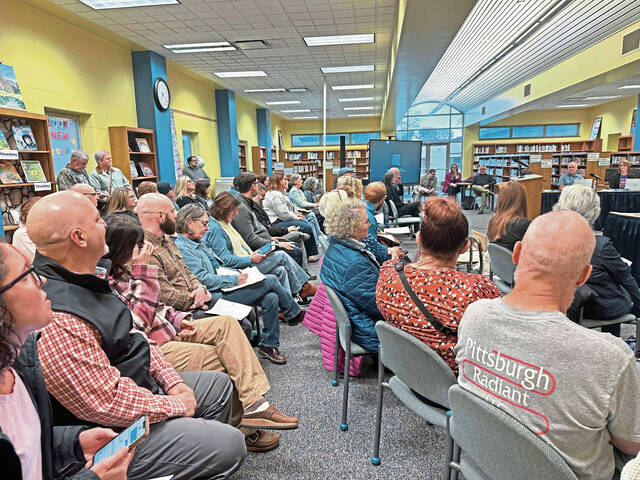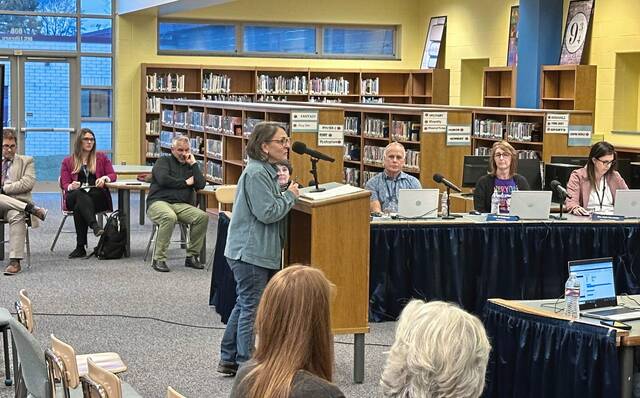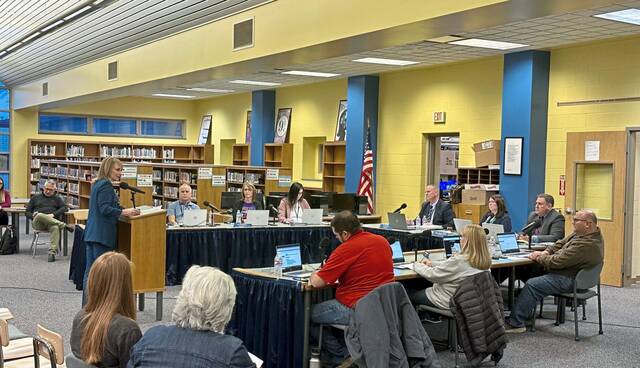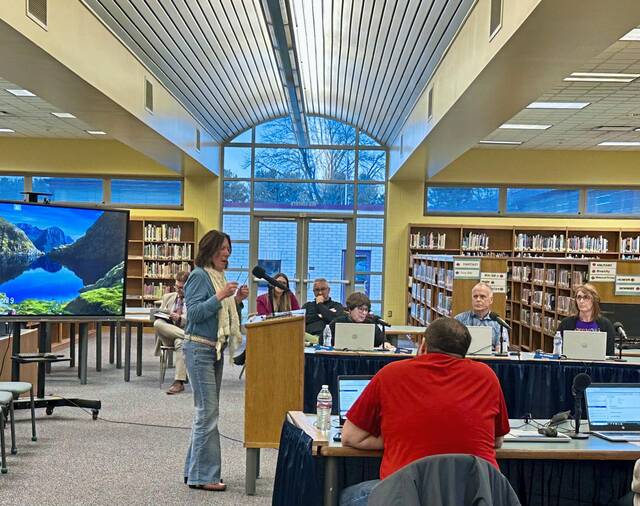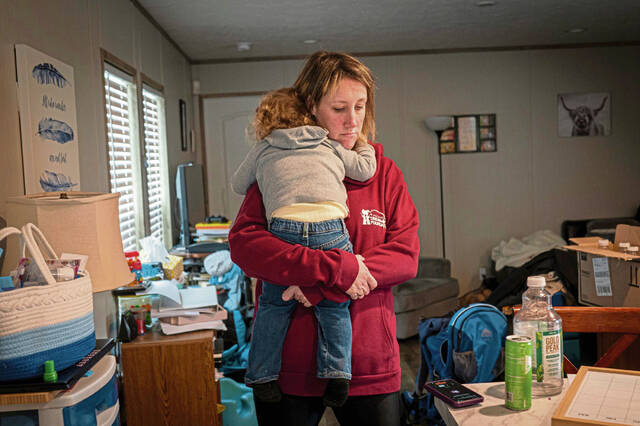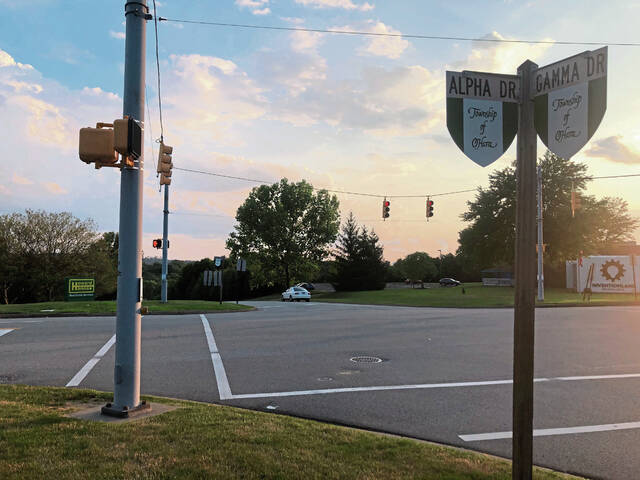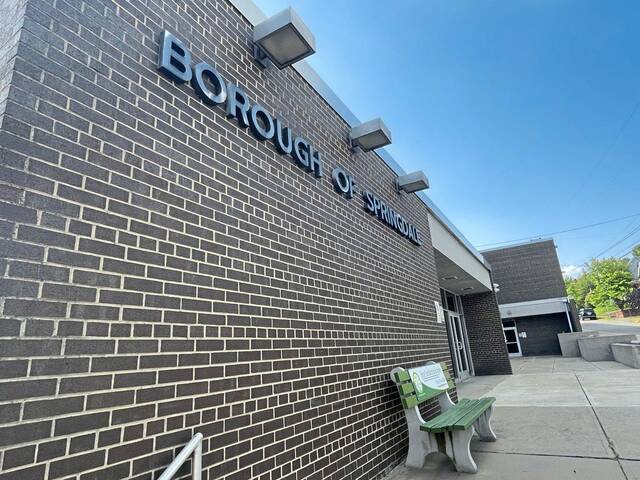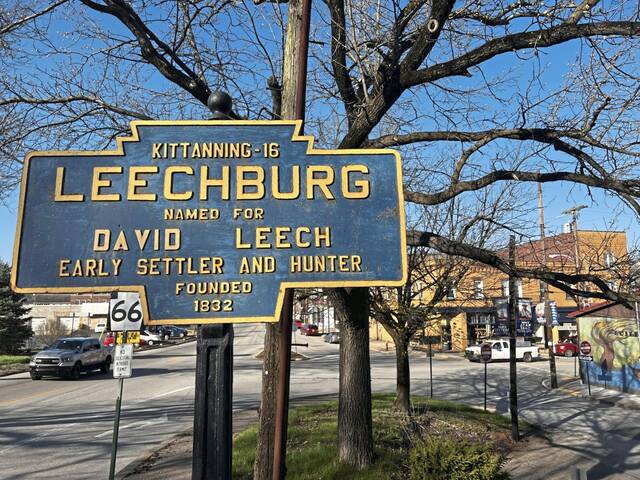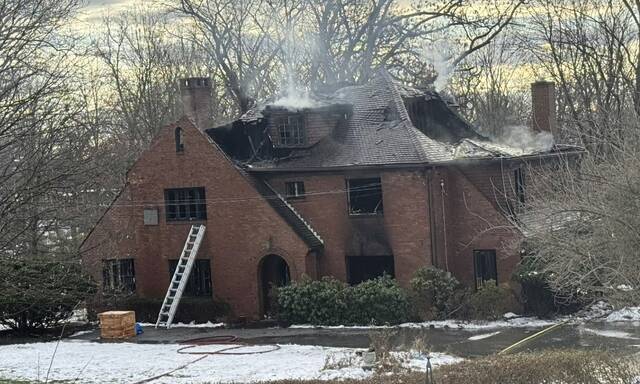Harrisyn Schilpp is a senior at Knoch High School, and this week was the first time he’d ever spoken at a school board meeting.
“As a student, as a performer and as a member of this community, I am deeply disappointed and honestly heartbroken that our school district would choose to align itself with something so harmful, exclusionary and unnecessary,” Schilpp told board members.
He, and most of the other people at the meeting, spoke to oppose a lawsuit over gender identity filed by the school district against the Pennsylvania Human Relations Commission and Gov. Josh Shapiro.
The lawsuit, filed March 6 in Commonwealth Court by the Knoch School District and the South Side Area School District in Beaver County, seeks to quash rules created by the human relations commission to expand the definition of sex to include things such as gender identity and expression.
“In our legal opinion, the (human relations commission and Shapiro) does not have the ability to redefine sex within the commonwealth,” said Knoch Solicitor Thomas Breth.
Breth’s law firm represents both school districts and individual parents from across the state, including Republican state Reps. Aaron Bernstine and Barbara Gleim, who joined the suit.
They claim only the state Legislature can redefine the meaning of sex in Pennsylvania.
The suit cites a 2024 state Supreme Court ruling that held it is unconstitutional to withhold or diminish a person’s rights because of their membership in either the “male or female division” of the human species. That language, they say, clearly defines sex as being either male or female.
Under the state’s regulations, updated in 2023, the definition of sex can include pregnancy, childbirth and breastfeeding status, sex assigned at birth, gender identity or expression, affectional or sexual orientation and differences in sex development.
Breth said the human relation commission’s authority does not trump the state’s Constitution or Supreme Court, both of which define sex as male or female.
District residents at the meeting, however, were more worried about what the lawsuit could mean for Knoch’s students.
“This board chose to join a lawsuit that targets transgender students — children — without ever notifying the public, without publicizing a vote and without a single shred of transparency,” said Schilpp’s mother, Chelsea. “You spent our tax dollars — my tax dollars — on legal representation to pursue an agenda that isolates, that stigmatizes and endangers some of our most vulnerable students. And you did it under a cloud of suspicion.”
The majority of speakers questioned the need for the suit and the influence of a conservative law firm with no affiliation to the school district.
The bulk of the lawsuit is being paid for by the Thomas More Society, a Chicago-based conservative public-interest law firm that focuses heavily on pro-life litigation.
According to the Thomas More website, Breth serves as the firm’s special counsel.
South Side and Knoch each agreed to make one-time payments of $10,000 to support the suit.
Joanna Wood, a parent of a second grader at Knoch Primary School, said the board should focus on promoting the well-being of students and academic standards rather than getting involved in lawsuits spearheaded by hyperpolitical organizations.
Residents accused the board of making the decision to grant the expenditure in violation of the Sunshine Act. The Act requires boards to advertise a meeting agenda at least 24 hours in advance of a meeting.
The item to vote for the expenditure was added hours before the March 5 workshop meeting. State law generally requires the agendas of public meetings to be made public at least 24 hours prior to a meeting.
“I’m concerned about poor governance and not following board policy, perhaps violating the Sunshine Act,” said resident Colleen Smith. “I’m concerned that this board and its members are becoming a very like-minded, single-view focus and not representing the larger body here.”
Breth said the agenda was amended in accordance of the Sunshine Act because the matter was “time sensitive.” He said the board announced the change and asked for public comment regarding the item.
Melissa Melewsky, media law counsel for the Pennsylvania NewsMedia Association, said there could be a compliance issue if the added item did not fall under one of two categories — an emergency, defined in the law as “involving a clear and present danger to life or property,” or “de minimis,” a very minor matter that does not involve creating a contract or expenditure of public funds.
“This is a significant sum ($10,000), especially when we consider that there are 500 school districts in Pennsylvania and only two have chosen to pursue this course of action, Knoch being one of them,” said resident Michael DeNee.
Board members Jill McDonald and Becky Boyd voiced their opposition to the lawsuit, calling themselves the two “no votes.”
Smith presented to the board a petition opposing the district’s involvement in the lawsuit. The petition purportedly was signed by about 100 school district residents.
Board President Donna Eakin said the board would take the comments under consideration.
When asked why the suit was being pursued now rather than when the regulations went into effect, Breath said, “School districts and parents are starting to realize that, despite the efforts being made at a national level to protect women and the country’s longstanding definition of sex, the governor’s office and the Pennsylvania Human Relations Commission aren’t respecting that precedent and have taken it upon themselves to redefine it.”



